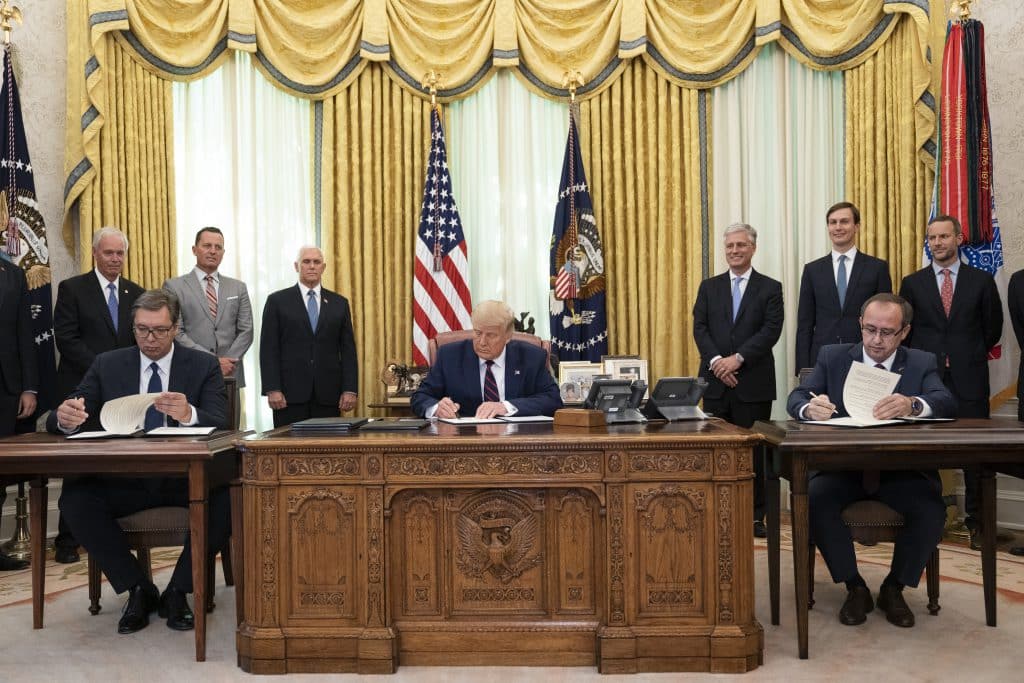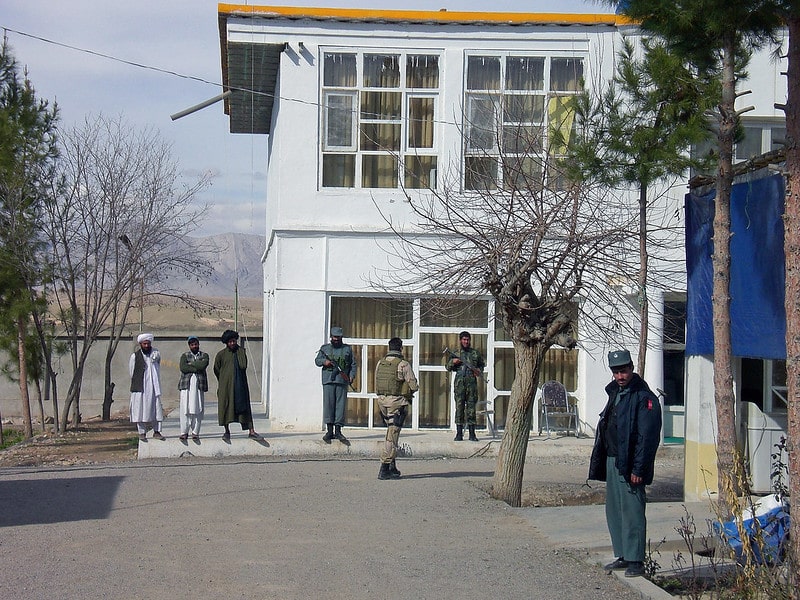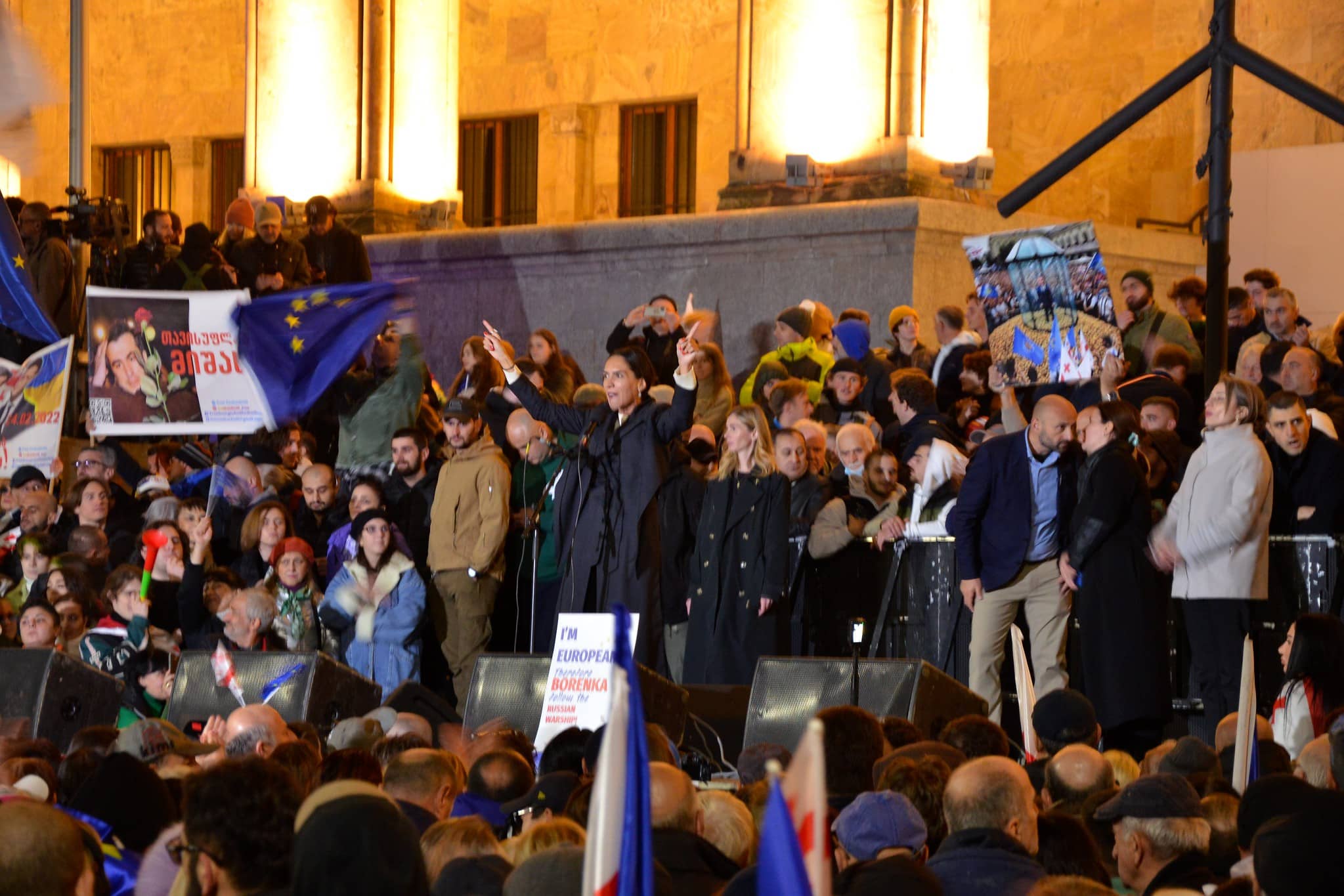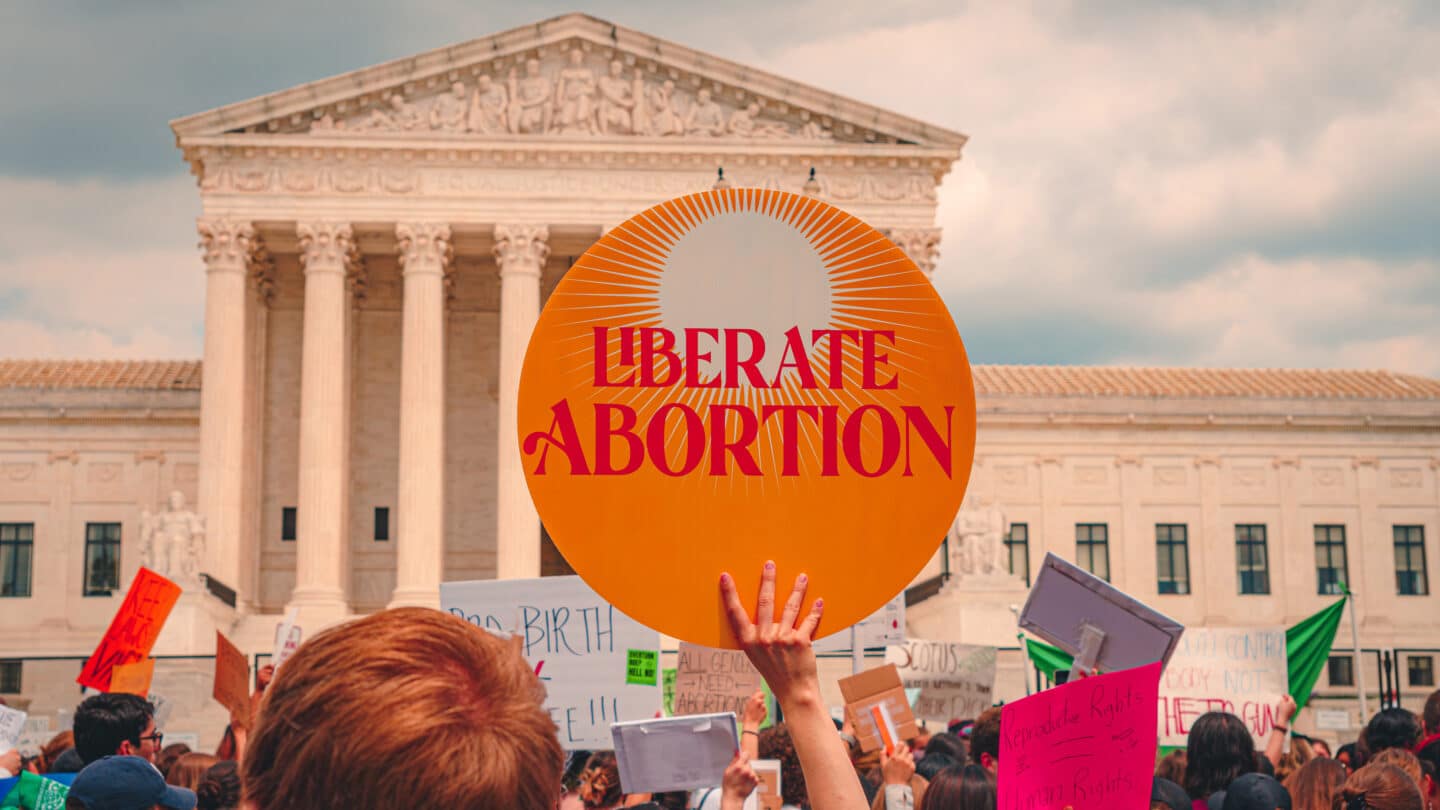Last Friday, US President Trump announced a breakthrough between Kosovo and Serbia, with an agreement that strengthens ties between the two countries. Since Kosovo's declaration of independence in 2008, the neighbouring countries have had a tense relationship. Serbia refuses to recognise that Kosovo is an independent country, and still sees it as a province of Serbia. For years, attempts have been made - unsuccessfully - to bring the countries closer together. Whether this agreement is really a breakthrough remains to be seen, as its content is not very concrete.
What does this "breakthrough" entail?
After two days of negotiations, Kosovo and Serbia both signed an agreement announcing the normalisation of their economic relations. The agreement includes a number of economic arrangements, such as resuming rail and air traffic and recognising each other's degrees. In addition, the countries promised not to plead with other countries to recognise Kosovo or not in the coming year, and Kosovo promised to refrain from applying for membership in international organisations in the coming year. Many of these economic agreements had previously been promised during talks with the EU.
Trump as mediator
With this agreement, Trump is once again citing his status as a "mediator". He did this earlier during an agreement between Israel and the United Arab Emirates. The Serbia-Kosovo accord also contains many agreements related to other countries. Many of these agreements are in the US' interest. For instance, Serbia promised to eventually move its embassy in Israel to Jerusalem, and Kosovo promised to recognise Israel and normalise ties with Israel. In addition, both countries have promised not to use 5G equipment from China's Huawei. They have also both promised to label Hezbollah as a terrorist organisation.
Both a different deal?
Kosovo and Serbia both signed their own agreement, which differed slightly in content from the other. For instance, there was no mention in the Serbian agreement that Kosovo would be recognised as a country by Israel, whereas Kosovo did. Serbian President Aleksander Vucic even told the Serbian press that he had signed an agreement with the US, and not with Kosovo. This makes it vague what the exact status of this agreement is, beyond the fact that the two countries are still in dialogue. In addition to the various Serbia and Kosovo agreements, President Trump signed letters confirming cooperation between the two countries. Contrary to what Vucic claimed, Trump, on the contrary, said he did not sign an agreement himself.
The controversial run-up to Trump's deal
The run-up to these talks was not entirely uncontroversial. In June 2020, it had been announced that two-part talks would follow. The first part, led by the US, would deal with economic aspects, and the second part would be led by the EU and deal with political aspects. However, this was cancelled after Kosovo President Thaçi was accused of war crimes. On 16 July, the talks started again anyway, led by the EU. In it, they discussed missing and displaced people from the war between the two countries and some economic aspects. According to the US, the EU and the US are in good contact over the talks, but the EU is not convinced by US interference. For instance, the EU is opposed to moving embassies to Jerusalem, something Serbia has now promised, according to Trump. The EU has stated that they expect countries eager to become members do follow the line of EU policy on Israel.
Last week, it was already reported that an earlier version of the agreement contained something about the recognition of Kosovo, something non-negotiable for Serbia. Domestically, Vucic has emerged as an authoritarian leader with his party, leading to many protests after the elections last June. The Kosovo president does not enjoy much support at home either, as his cabinet has a very narrow majority. There is much division over how to continue the talks with Serbia, for instance, opposition party the Alliance for the Future of Kosovo (AAK) would rather see the US as moderator than the EU, while more talks are now planned in Brussels.
The sequel...
September 7, the two countries met again in Brussels, where they discussed, among other things, the Community of Serbian Municipalities in Kosovo (CSM) and some financial issues. There are still many difficult issues to be discussed where the two countries disagree, but it seems that the two countries are in serious talks. The next negotiations, on the CSM, are scheduled for 17 September in Brussels. The next meeting with the leaders of the two countries is scheduled for 28 September.
By: Annelou Snippe
Photo: Flickr





